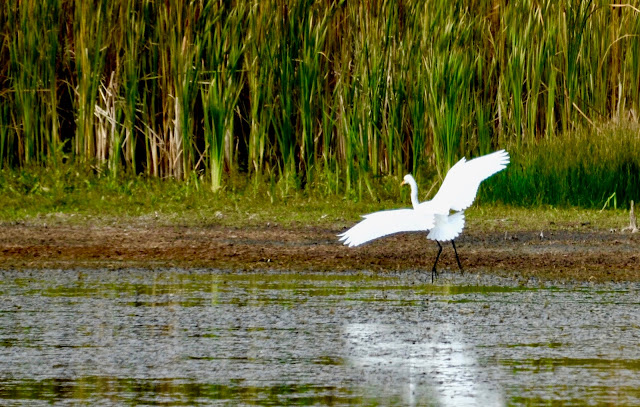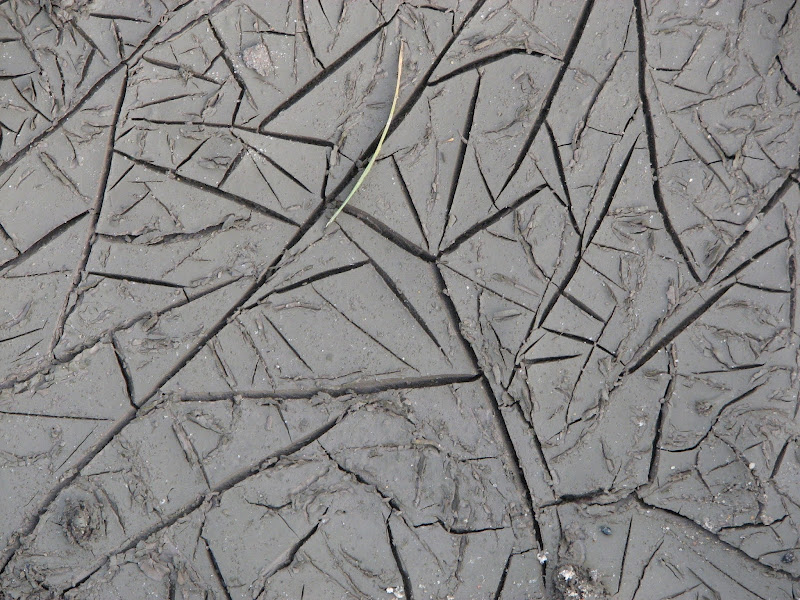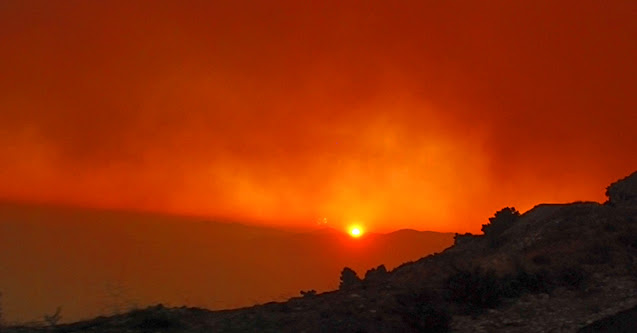by Larry Powell The task of building a safer, healthier planet, surely, will only begin anew once we have defeated this beastly pandemic. So, are there lessons we can learn from Covid that we can actually use to blunt the assault of that other existential threat - manmade climate change? Smoke obscures the sun in one of the increasing number of wildfires in recent years - infernos which are starting earlier, lasting longer and burning more intensely. A Wikimedia photo. The steps being implemented globally to counter the deadly virus, Covid 19, have surely been sweeping, drastic and unprecedented. And rightly so. While we could argue over which crisis is more grave, one important reality seems clear. As with every other contagion to have attacked human civilization in past, Covid 19, too, will pass. Sadly, if we do not take steps which are similarly drastic to the ones now happening during the pandemic, that will not be the case with the climate crisi



















